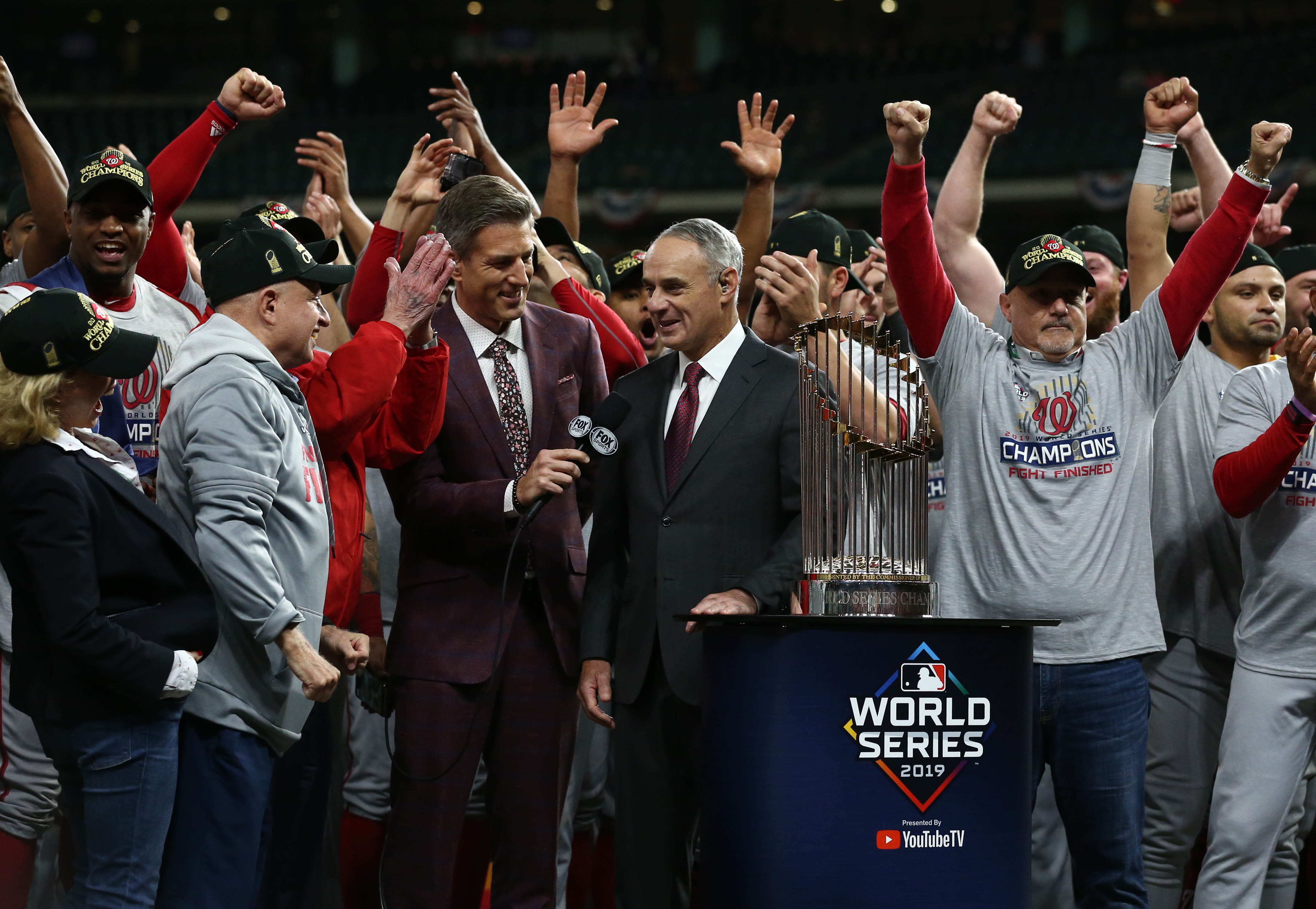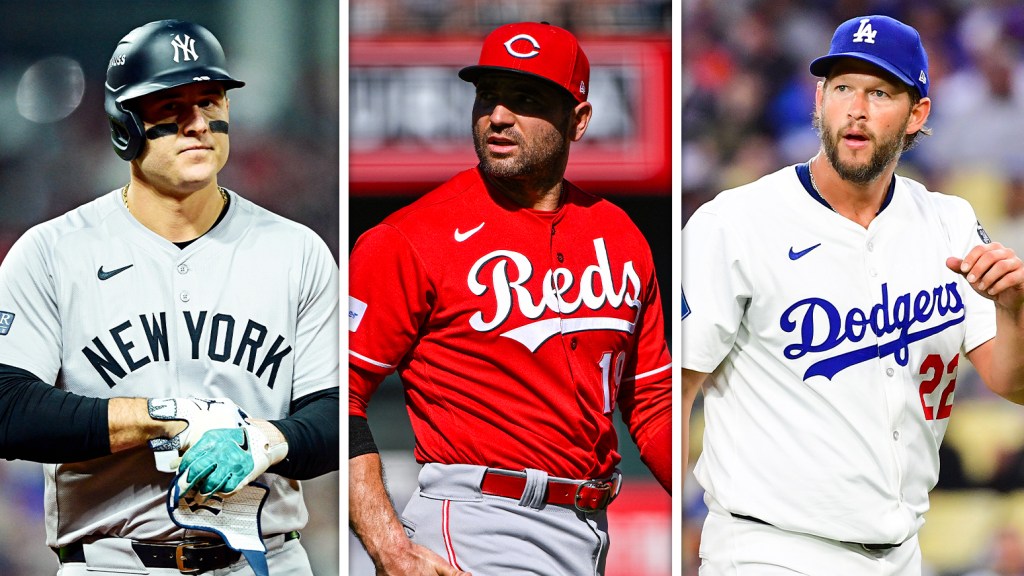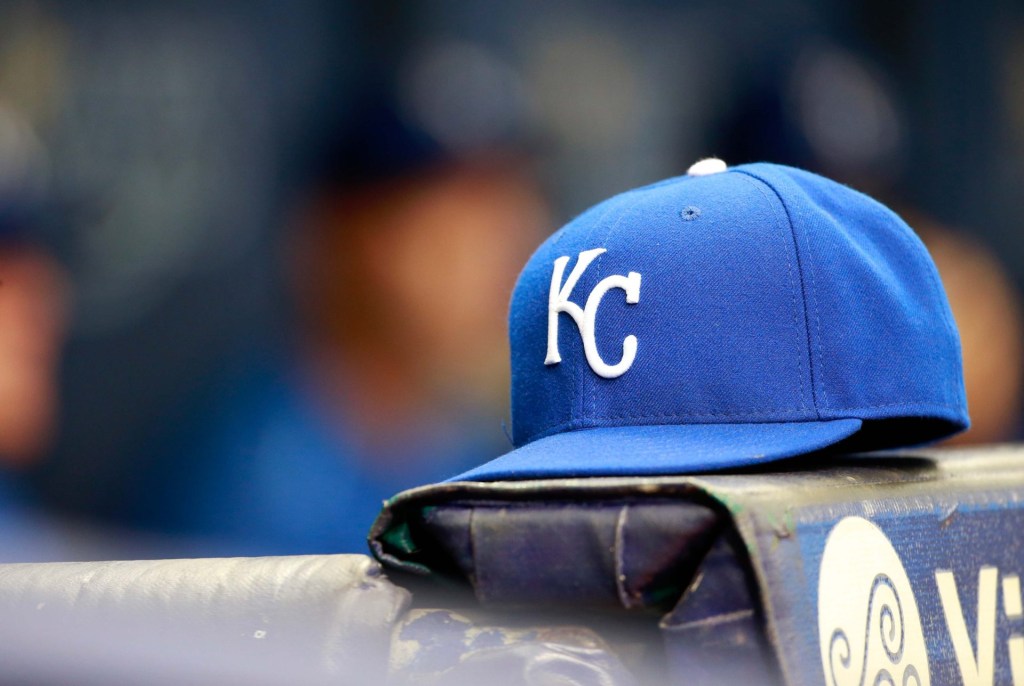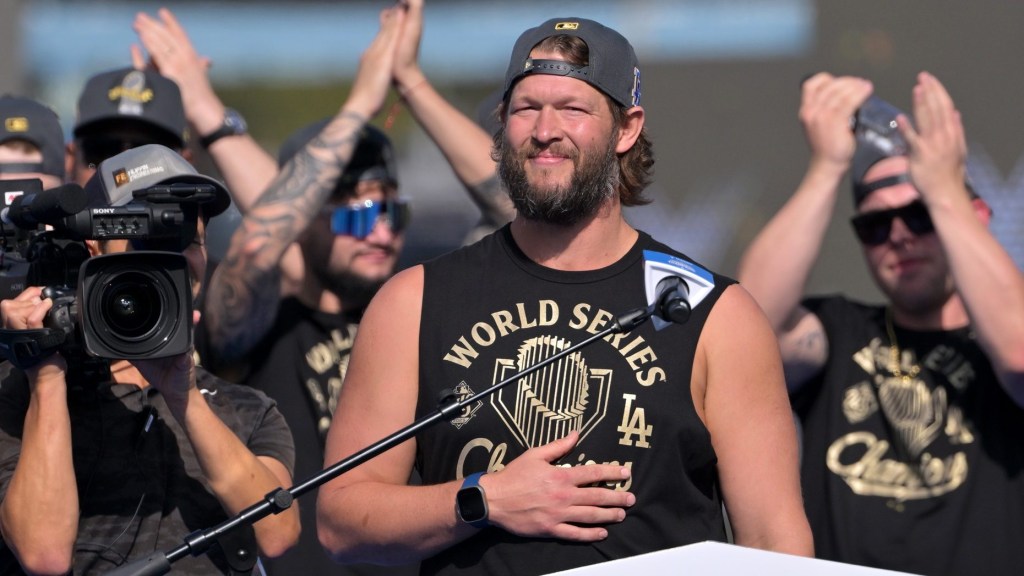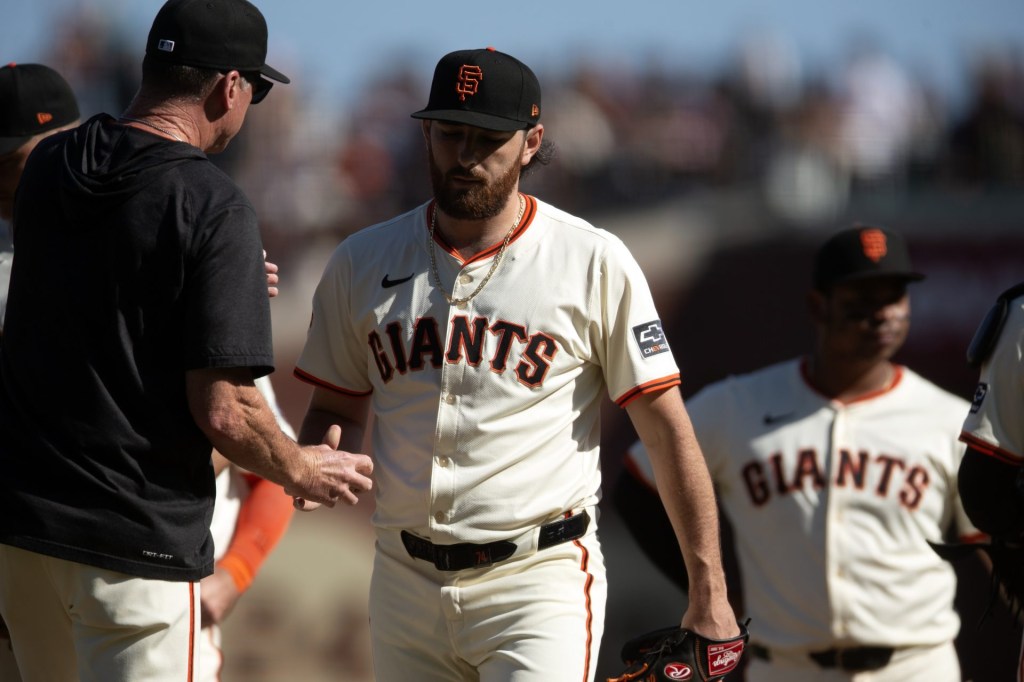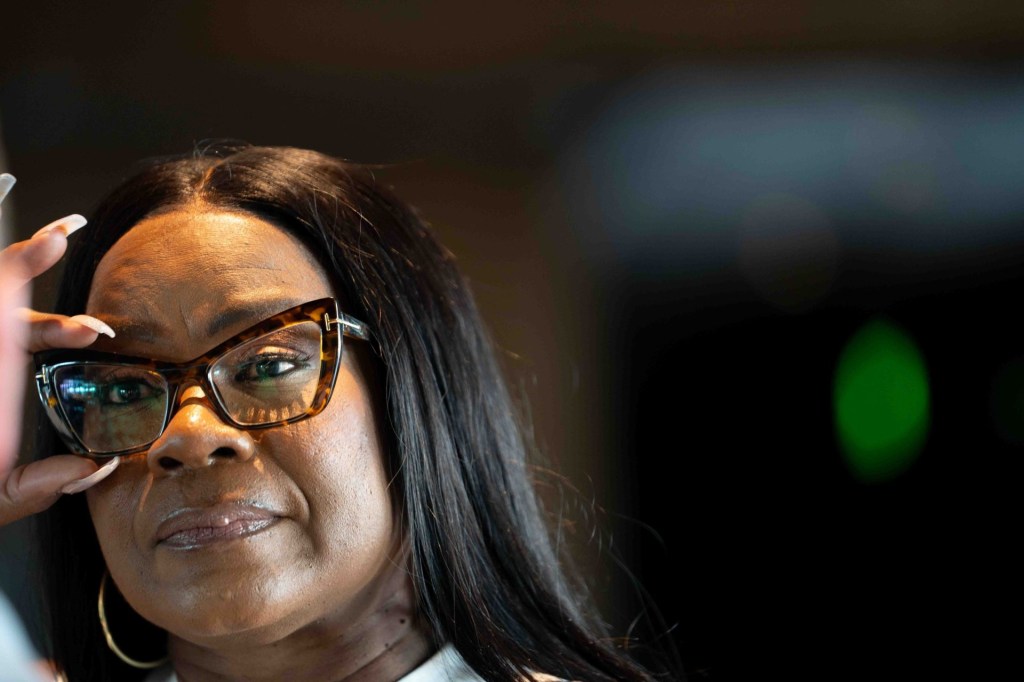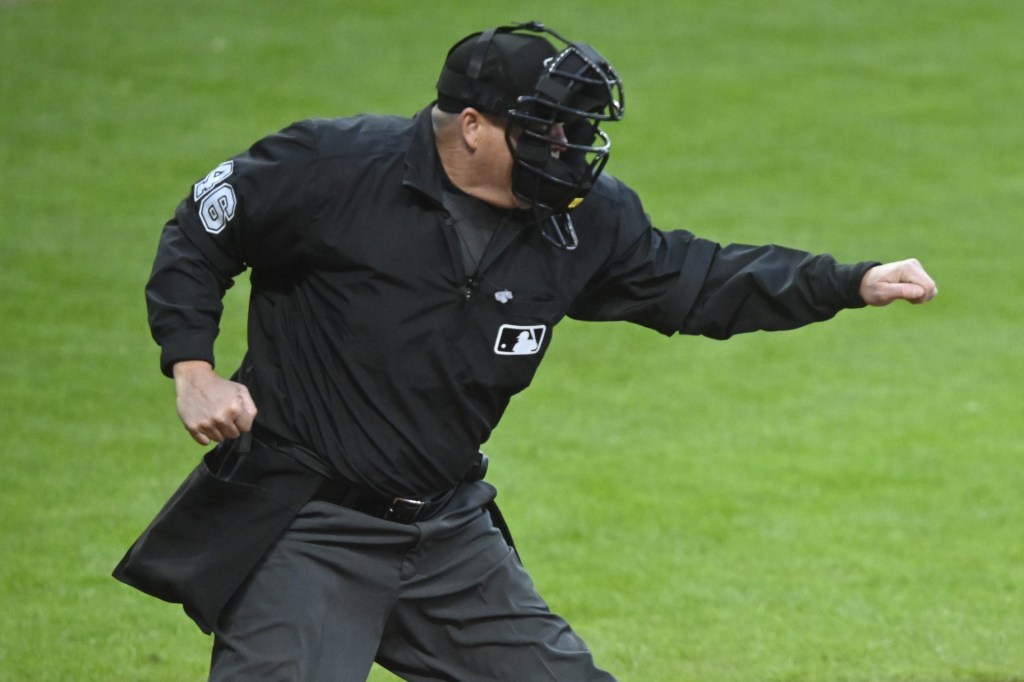There are several advantages to marketing with MLB teams throughout the regular season.
With home games spanning six months, brands have ample opportunity to activate locally and establish high-level relationships with fans.
But when the calendar shifts to October and the MLB postseason, the strategy changes.
The MLB playoffs for brands are about putting their product in front of as many eyeballs as possible.
Taco Bell and YouTube TV are prime examples of brands using this tactic as both are annual World Series partners. This postseason also marked the second consecutive year that all four rounds of the MLB playoffs had an official presenting sponsor.
The disadvantage MLB has on the national stage is that baseball largely remains a local game. The league is reliant on matchups to draw in fans and top advertising dollars for networks during the playoffs, according to Woody Thompson, executive vice president of marketing for Octagon. While the NFL is a weekly event and the NBA has more superstar appeal, only a select number of professional baseball teams have a vast national following.
Baseball is also currently a game rooted in nostalgia, a label the league is desperately trying to get away from as it grows with millennial and Gen Z viewers. MLB recently launched a new “We Play Loud” campaign showcasing its young superstar talent, including Cody Bellinger and Aaron Judge, that aired at the beginning of the postseason to change that narrative.
“We talk to the people over at Fox and they are confident the game resonates well with a meaningful number of young adults,” said Thompson, who has worked with brands like MasterCard and Doosan on MLB advertising strategies for more than two decades. . “Increased participation in baseball and softball is also way up. How you turn that participation into fandom is a challenge for MLB, and to a certain extent the broadcasters spending billions of dollars on media rights.”
Brands again this year spoke with their wallets to reach their intended target audiences during the postseason. According to TV ad measurement firm iSpot.tv, companies shelled out an estimated $652 million during the 2019 MLB playoffs. North of 40% of those marketing dollars were spent during the World Series.
Many of the big spenders were official MLB partners, including GEICO which topped the list at $19.4 million. T-Mobile, Progressive, Taco Bell, and YouTubeTV rounded out the top five, according to the researcher. Collectively, all partnering brands garnered more than 17 billion impressions across TV and social media channels.
“With MLB, we’ve been able to drive business priorities and elevate our brand by connecting with fans around the country in unique and authentic ways,” said Mike Belcher, VP of business development and partnerships at T-Mobile.
READ MORE: Baseball Bat Mug Startup Taps Into Fans Love of Beer
The telecommunications company’s relationship with MLB dates back to 2013. T-Mobile also became the official sponsor of the Home Run Derby three years later – a deal that runs through the end of the 2022 season. Customers additionally get free access to MLB.TV through the company’s T-Mobile Tuesdays rewards program.
“MLB.TV continues to be one of our most popular offers,” said Belcher. “As we do with all our partnerships, our strategy for MLB is no different. It’s built on enhancing the fan experience for all baseball fans, while most importantly, adding extra perks for our customers.”
Chevy’s relationship with MLB since 2005 is very much focused on youth, according to the company. The U.S. automaker has been the official partner of Play Ball, MLB’s initiative to encourage participation in baseball and softball, since the program began in 2015.
Houston Astros Second Baseman Jose Altuve is also the brand ambassador of Chevy Youth Baseball – Chevy’s own version of the outreach program.
“Chevrolet and baseball go hand-in-hand with their strong American roots,” said a company spokesperson, adding that in addition to its league deal, Chevy sports 15 partnerships with individual MLB teams.
Taco Bell does not have any MLB partnerships at the team level, but it does run an annual “Steal a Base, Steal a Taco” promotion that has become popular with even non-baseball fans.
The restaurant operator has run the campaign eight times since 2007, resulting in immediate spikes in foot traffic, it told Front Office Sports this week.
The fast-food chain prefers to come in with advertising dollars during the MLB playoffs and World Series, according to Will Bortz, Taco Bell’s director of partnerships.
“It’s an opportunity for our brand to bring more people into the conversation,” he said. “MLB has really allowed us to be flexible and build something that has become synonymous with the World Series.”
READ MORE: Another Year Of Declining Attendance: How Worried Should MLB Be?
T-Mobile, Taco Bell, and Chevy each declined to discuss ad spending during the MLB playoffs. iSpot.tv estimates the companies spent $16.3, $12.4, and $10.8 million, respectively, on marketing efforts with TV networks during October. Both Fox Sports and Turner Sports did not immediately respond to requests for comment.
No interviewed company was overly concerned about declining TV ratings and regular-season attendance either.
Through game five of the World Series, the matchup was on pace to become the least-watched Fall Classic in MLB history, according to Nielsen. While ratings picked up for games six and seven, the 2019 World Series between the Houston Astros and Washington Nationals still finished as the least-watched contest in five seasons.
“Game seven this World Series had more than 23 million viewers, the most since Game seven in 2017,” said Belcher. “The Nationals were 19-31 in late May and ended up World Series champions. It’s incredible and something that really speaks to the magic of sports, baseball in particular. That said, I don’t think you can mark these moments with numbers, that’s not what they’re about.”
